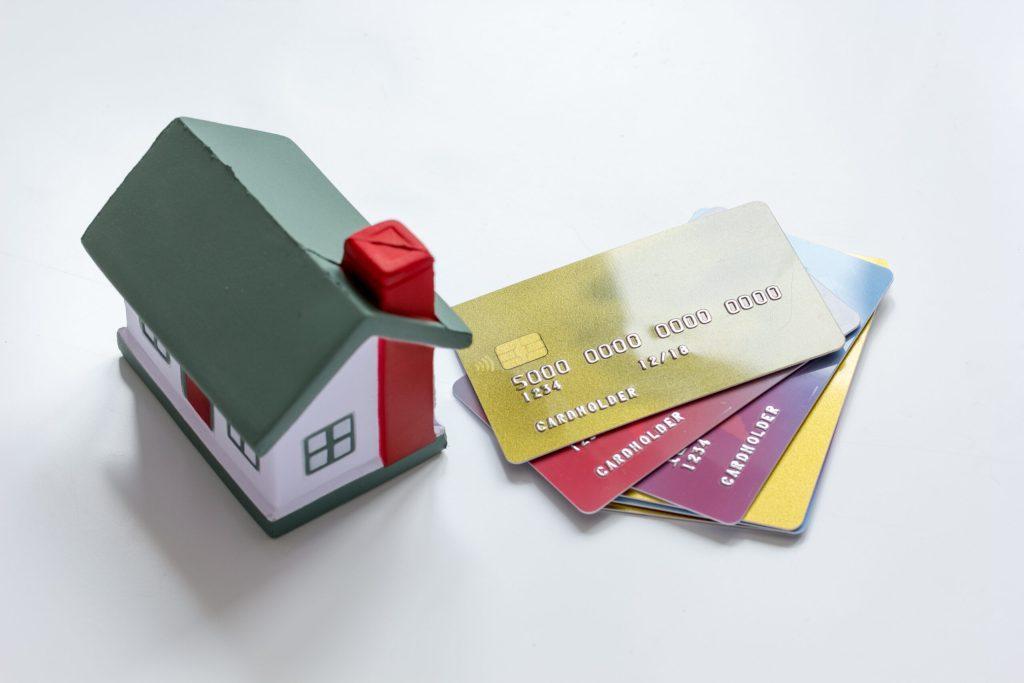When preparing to buy a new home, it’s imperative that you understand how credit card use can affect your mortgage application. Your debt-to-income (DTI) ratio – which is how much you owe compared to how much you make – is one of the most important factors lenders consider when deciding whether to approve a home loan.
So, does applying for a credit card hurt your chance of getting a home loan? Knowing how credit cards fit into loan-approval equations can help you make smart decisions about using credit before buying a home.
It’s always a good idea to pay down as much debt as possible before applying for a mortgage loan. High balances can play a role in the loan you get, and you don’t want to end up paying more interest than necessary because your DTI ratio is off. Learn more about the role your credit card debt can play when you’re applying for a mortgage.
DTI Ratio and Your Credit
When it comes to your credit score, a critical factor is your debt-to-income (DTI) ratio. This number is calculated by dividing all your monthly debts by your gross monthly income. The higher your DTI number is, the more difficult it’ll be for you to qualify for a loan or line of credit with low interest and good terms.
While it’s true that creditors look at more than just your DTI when evaluating whether they should extend you credit, having a high debt-to-income ratio can make it much harder to get approved. If you have a high DTI, lenders may view you as risky.
Credit Card Impact to Mortgage Applications
If you’re planning on buying a house soon, you might wonder: should I open a credit card before buying a house?
In short, credit card use can significantly impact your ability to secure a mortgage. Lenders review your credit report and score when you apply for a loan to determine if you’re an acceptable risk. Credit cards can help or hurt this process, depending on how you use them and the amount of your balances.
Preparing Credit for Mortgage
When it comes to preparing your credit for a mortgage, there are several steps you should take.
Check and Monitor Credit Score
First, check and monitor your credit score. You can get a free copy of your credit report from each of the three major reporting bureaus annually at AnnualCreditReport.com. It’s important to review your credit report carefully (and regularly) and dispute any errors or inaccuracies that may be present.
Pay Debt on Time
Make sure all payments are made on time every month. This includes not only loan payments but also rent and utility bills, as well as other debt obligations such as student loans or medical bills. Late payments can really harm your credit score, so paying on time each month is essential.
Pay Off (or Down) Debt
It’s wise to try to pay off as much existing debt as possible before applying for a mortgage loan. When trying to take out a home loan, having too much outstanding debt will negatively impact how much you qualify for and what interest rate you’ll pay.
Avoid New Credit Accounts
Avoid opening new lines of credit or getting a new credit card before buying a house or applying for a mortgage. Otherwise, you might have a significantly higher interest rate on your loan. Some lenders may even have risk assessment policies that ultimately disqualify you from being approved for a loan.
After Closing, Is New Credit OK?
Applying for more credit cards or loans can be tempting when you’ve just closed on a new home. After all, you’re a homeowner now. You have access to more financial resources than ever before. But is it smart to open up new lines of credit just after closing on your home?
The answer depends on your situation and goals. Remember that taking out additional debt will affect your DTI ratio, and you already just secured a large loan. Make sure you’re comfortable with your new expenses as a homeowner before taking on additional debt.
Still looking for a great credit card option? Check out our Visa Platinum and Signature credit cards.
Final Thoughts
When applying for a mortgage, your credit history and score are important factors that lenders consider.
Knowing how credit card use can impact your ability to qualify for a loan is essential. It’s important to understand how credit cards work when trying to get approved for a mortgage. Credit card companies report information about their customers’ accounts on their monthly statements, including payment history and balances owed. Lenders use this information to determine whether or not an applicant qualifies for a loan.
To ensure you’re in good standing with creditors before applying for a home loan, it’s best to pay off outstanding debts and keep current on all payments. It’s also wise not to use new lines of credit during this period since doing so can lower your overall score and result in higher interest rates (or, worse, being denied entirely).
Are you considering applying for a credit card before a mortgage? HFS Federal Credit Union can help. Our experienced team of financial experts can guide you through the process, providing personalized advice to ensure that credit decisions are sound and beneficial in the long run.
Visit our website today to learn more about how we can assist with your needs, so you can get started building better financial security!

